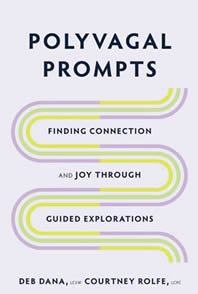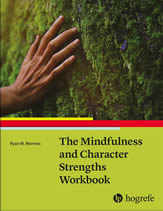The Science of Addiction: From Neurobiology to Treatment, 2nd Edition
The Science of Addiction provides up-to-date research to explain causes of and treatment options for addiction. In so doing, author Carlton Erickson informs readers of the many facets of addiction, i.e., neurobiology, genetics, brain disease, and offers a detailed look at its manifestations.
Thirteen distinct chapters help readers understand addiction. Chapters 1-3 focus on the terminology of addiction and why it confuses both professionals and the general public. A detailed look at what addiction is and what it is not is rooted in words. The author suggests that words like ‘addiction’ and ‘alcoholism’, as used in every day conversations, are “colloquial, unscientific, stigmatizing, and just plain wrong” (pg. 3). “Words matter!” he writes. “Precise language reduces misunderstanding, stigma and false impressions” (pg. 4).
Anorexia Nervosa: Focal Psychodynamic Psychotherapy
Anorexia nervosa. Two words that often summon an image of emaciation: the kind where skin hangs off bones, darkened sockets shield distant eyes refusing to see, the smell of one’s body feeding on itself, the remnant of a cannibalization process meant to perpetuate life.
Infant and Toddler Development: From Conception to Age 3. What Babies Ask of Us
Mary Jane Maguire-Fong and Marsha Peralta, recently published, Infant and Toddler Development: From Conception to Age 3. What Babies Ask of Us. In their “Preface”, they acknowledged my mom as a colleague and friend who has been “a source of wisdom, counsel, and inspiration in this work” (pg. x). Peralta noted, “We have so appreciated her contributions to our thinking and perspective”
It’s Never Too Late: Healing Prebirth and Birth At Any Age – Review
I was taken by Mia’s presentation of both information about what happens and what outcomes may result and also her specific processes, complete with dialogues and case studies, to work toward understanding and healing moments that can and do create imprints that influence our lives to come—who we are in this world, how we view ourselves within our family system as well as our communities at large, and how we believe the world accepts and values us.
Worried? Science investigates some of life’s common concerns
Worried? seeks to relieve some of our anxiety by teaching us to take control of the situations that cause us to worry. The authors claim that taking control involves “critically evaluating potential threats, determining what poses the greatest danger, and prioritizing your actions to minimize adverse outcomes” (pg. 2) and this is exactly what they achieve in their book.
Promoting healthy attachments: Hands-on techniques to use with your clients
Deborah Gray has written a compelling and easy to follow book to educate therapists on how to strengthen the quality of attachments when working with clients struggling with a variety of attachment difficulties. The book is geared towards therapists looking to learn more about attachment.
The Pursuit of Endurance: Harnessing the Record-Breaking Power of Strength and Resilience
I’m curious about where their inner reserves come from and how they draw on them in the heat of misery, pain, suffering. Where does the resiliency come from? Is it from God? Instilled in our being at birth?
Pharr Davis delves into these questions with intriguing responses; her own and others she’s met on the journey.
The Enchanted Hour: The Miraculous Power of Reading Aloud in the Age of Distraction
The reading specialist in me refused to wait. Meghan Cox Gurdon’s essay in The Wall Street Journal (January 19-20, 2019), adapted from her new book, The Enchanted Hour: The Miraculous Power of Reading Aloud in the Age of Distraction, inspired me.
The Dynamics of Infidelity: Applying Relationship Science to Psychotherapy Practice
Infidelity can cause problems in any monogamous relationship, and couples often approach psychotherapists with these issues. With this book, Josephs aims to offer a practicable, evidence-based treatment plan that, in his view, is currently lacking in the field. Based on his experiences with patients, Josephs found that the available research was insufficient for the purposes of providing patients with holistic treatment that truly addressed the variable roots of infidelity. Geared towards psychotherapists and other mental health professionals, this book presents an thoroughly-researched, multifaceted treatment for infidelity.
Brief Dynamic Therapy
As part of the “Theories of Psychotherapy Series” from the American Psychological Association (APA), this book focuses the components and benefits of brief therapy. Intended for clinicians, Levenson’s book is informative and instructive as it is paired with a companion video that demonstrates the treatment. The brevity and organization make this book helpfully simple and user-friendly. Levenson utilizes tables, bulleted lists, and other visuals alongside her well-researched writing to clearly present this treatment as a viable tool for therapists.














